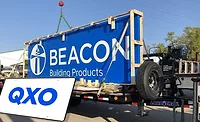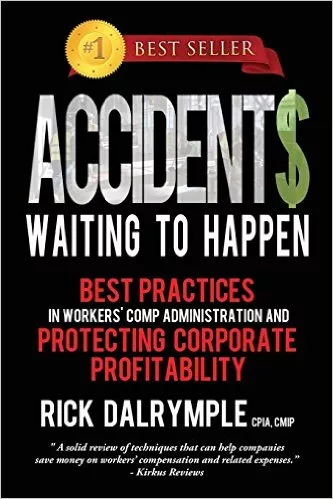Emotional Quotient
The Roofing Consolidation Boom—and Its Impact on Workers
Private equity’s continued accumulation in roofing, along with consolidations within distribution must navigate the real-world impact on its workforce

As private equity reshapes the roofing industry, employees face rising stress, job insecurity and cultural disruption — revealing the human cost of rapid consolidation. A new study on employee morale and mental health asserts that communication is key.
“It isn’t the changes that do you in, it’s the transitions,” writes William Bridges, author of “Managing Transitions: Making the Most of Change,” often referred to as the father of change and transition management.
“Change is situational — the new site, the new boss, the new team roles,” he continues. “Transition is the psychological process people go through to come to terms with the new situation.”
That distinction — between “change” and “transition” — has since become a foundational tenet for organizations going through mergers and acquisitions or enduring identity-shifting events.
Bridge’s work is especially relevant when companies are sold, which often results in longtime employees feeling disoriented or displaced.
The roofing industry, particularly within its residential sector, is undergoing a significant transformation driven by an unprecedented surge in private equity investment. As I first reported last February, at the start of 2023, there were 17 roofing contractor platforms. By the end of 2024, that number had jumped threefold to 56 platforms, representing a 229% increase in just 24 months.
As rapid consolidation reshapes the industry's landscape, tremendous opportunities exist for roofing contractors looking to exit or expand operations. However, one person’s opportunity can be experienced as another’s challenge, particularly among rank-and-file employees regarding morale, mental health and organizational culture.
The Human Side of Consolidation
A new study published last month by TalentLMS and WorkTango, titled "Cracks in the Transformation Playbook," highlights the human costs associated with organizational vicissitude. As smaller roofing firms fold into larger portfolios, these changes may test long-standing company cultures and employee identities. Employees frequently absorb the shock of restructuring, and this study suggests the individual cost can be steep.
 TalentLMS/WorkTango surveyed 1,200 U.S. employees who underwent a significant workplace transition — downsizing, company restructuring or reorganization, a CEO change, or an M&A — in the past year. The study found that about half of workers say a major organizational change shattered their trust in leadership.
TalentLMS/WorkTango surveyed 1,200 U.S. employees who underwent a significant workplace transition — downsizing, company restructuring or reorganization, a CEO change, or an M&A — in the past year. The study found that about half of workers say a major organizational change shattered their trust in leadership.
Uncertainty has tangible effects on morale and retention. In the TalentLMS/WorkTango findings, 43% of employees said their job security felt worse and 45% said their job satisfaction declined after a major change.
More than one-third of respondents said they were more likely to seek new employment because of the transition, with workers who already had lower seniority or fewer skills suffering most from what has been dubbed “merger syndrome,” which is experienced as uncertainty and loss of identity.
These pressures were coupled with heavy workloads — 46% of respondents said work piled up as teams adjusted — and one-third saw a drop in work-life balance.
Unsurprisingly, stress is pervasive: roughly three in five (59%) said their stress levels increased during a large-scale change. Subsequent data showed 64% experienced higher anxiety and 52% reported feeling burned out.
The study noted that only 12% of companies offered any mental-health support to help cope.
A Tale of Two Views
Corporate leaders portray deals as growth opportunities. A top-of-mind example is one of 2024’s most significant acquisitions: The Home Depot's purchase of SRS Distribution, one of roofing’s “Big 3” material distributors.
While SRS distinguished itself by a uniquely individualized branding scheme — each outlet acquired retained its original name and branding — The Home Depot’s corporate identity prioritizes uniformity.
Following the acquisition, CEO Ted Decker praised SRS’s “strong vision, leadership, culture” and said he looked forward to “welcoming the entire SRS team” into the company.
Whether that love was unrequited may never be known, but SRS’s president Dan Tinker echoed the sentiment, saying his team was “thrilled” to join The Home Depot. Many surely were, but as company leaders tout integration synergies, TalentLMS/WorkTango data suggests caution.
RELATED
Podcast: Why Home Depot and SRS Distribution Make a Good Fit
More than four in 10 respondents said a transition negatively affected their job security, 45% said their job satisfaction declined, 40% experienced a decline in motivation, and 30% said their engagement was negatively impacted.
While no figure in those categories constitutes a plurality — say your company has 10 employees and three or four of them feel dispossessed or worse — the impact would be difficult to ignore; economies of scale tend to exacerbate rather than obscure negative feelings.
In a fragmented industry like roofing, where many employees value local relationships and independence, these upheavals risk damaging the culture that leaders often tout. Common questions about pay, roles, or even office location can circulate. Left unaddressed, such fears erode morale and hamper performance.
DealRoom analyst Kison Patel notes that even talk about a “merger of equals” rings hollow if staff see one side dominating — employees watch what management says and does. In practice, many workers in change processes feel left out; the survey report found nearly half (46%) were never asked how the change affected them. This top-down delivery of change undermines engagement.
Roofing employees face some specific pitfalls: new corporate systems (like ERP software, safety protocols or sales incentives) may be imposed quickly, and even well-intentioned changes in pay, benefits or work rules can be seen as threats.
Without a clear explanation, employees will ruminate over the most personal questions: “Will my salary change? Will I lose my job?” The TalentLMS/WorkTango data shows that stress becomes the norm when companies fail to communicate or support staff.
ECGI research on mergers finds that workers report significant increases in stress and even mental health issues. The research shows there’s a rise from roughly 10 to 13% in diagnosed mental illness post-merger.
What’s a News Boss to Do?
A tectonic acquisition from Q2 of this year, of course, is new entrant QXO’s subsumption of Beacon Building Supply, a $11 billion purchase we've covered since last November when news leaked that uber-entrepreneur Brad Jacobs wanted in on the supply industry.
The dance between the two companies most certainly had everyone on their toes, and what was long considered a hostile takeover ultimately became a purchase that industry observers, and many Beacon employees, came to see as a potential net positive.
Employees during the second week after the transition.
Image: QXO | Instagram
But why?
Based on findings from TalentLMS/WorkTango, Jacobs seemingly did everything by the book. The mogul has made over $55 billion for shareholders through various businesses he's started and spun off, yet the key to his success can be found in Bridges’ assertion of transparency and communication.
Engaging employees in the transition process, seeking their input and keeping them informed can foster a sense of ownership and reduce resistance. Shortly after Jacobs and Beacon’s Board of Directors made their handshake deal, but more than a month before the purchase closed, Jacobs held a virtual town hall with around 3,000 Beacon employees following the announcement — nearly 40% of all employees participated.
That meeting, during which Jacobs reportedly shared his vision, fielded questions and directly asked employees for their buy-in, started a weeks-long effort to build trust between Beacon's rank-and-file and the new leadership.
On social media, one Beacon employee, recalling a moment from that meeting, wrote, “As [Jacobs] said on the teams call Thursday, ‘please don’t quit.’ Don’t let someone else’s opinion or trepidation interfere with what I truly believe will be the biggest step forward in every QXO employee’s career.”
While QXO's acquisition does not fit within the PE rubric that is changing the shape of roofing, the tectonic cultural and managerial changes do fall squarely within the context of the study's findings.
A primary concern during a PE-driven consolidation is the potential erosion of company culture and identity. Employees often fear losing the values and practices that made their workplace unique. Jim Ziminski, chairman of Omnia Exterior Solutions, one of roofing’s pioneers in platform creation, emphasized the importance of cultural fit in PE partnerships.
"If I don’t like you, I don’t care how good the business is," Ziminski said in an interview earlier this year discussing synergies beyond just wealth creation.
Ensuring that new ownership respects and integrates existing cultural elements can help mitigate employee apprehension and preserve organizational cohesion.
The aforementioned study revealed that 45% of employees felt they needed new skills to adapt, yet nearly half did not receive sufficient training. Investing in employee development facilitates smoother transitions and demonstrates a commitment to workforce growth.
Consultants recommend “training initiatives” for employees on any new systems or workflows. Dedicated programs — from onboarding to ongoing upskilling — signal that the company values its people. The M&A Leadership Council specifically notes that tailored training programs are the fastest way to reassure employees of job security and convey the vision of the combined organization.
During a March interview, Jacobs said QXO’s approach wasn’t just about an acquisition but partnering closely with Beacon’s 8,000‑plus employees to unlock their untapped value.
“We’re buying Beacon for its talented employees,” he said.
Strategic Recommendations
- To navigate the complexities of PE-driven changes, companies should consider the following strategies:
- Prioritize Mental Health: Implement support systems such as counseling services and stress management programs.
- Foster Open Communication: Regularly update employees on changes and solicit their feedback.
- Invest in Training: Provide comprehensive training programs to equip employees with the necessary skills.
- Preserve Company Culture: Identify and maintain core cultural elements that define the organization.
By remaining proactive, roofing firms — or any company in a similar situation — can better manage the challenges associated with new equity investors, ensuring organizational success and employee well-being.
Looking for a reprint of this article?
From high-res PDFs to custom plaques, order your copy today!









